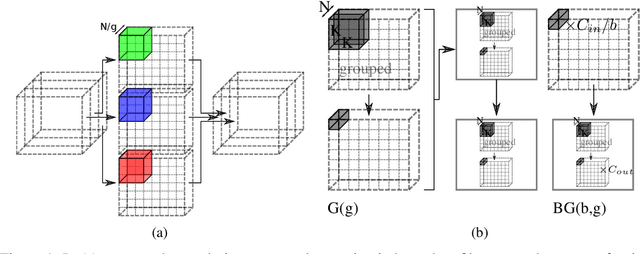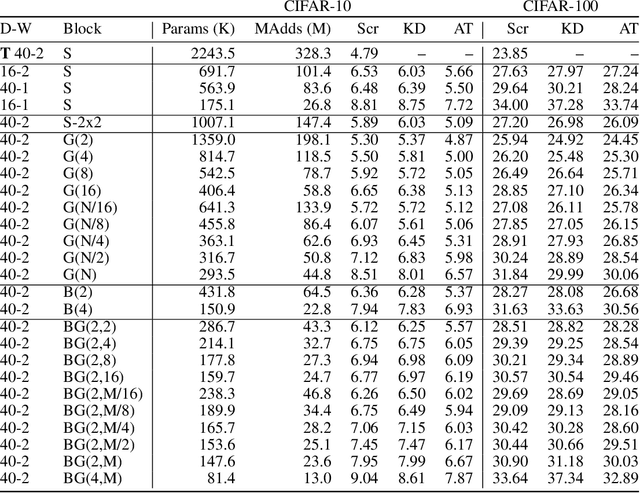Moonshine: Distilling with Cheap Convolutions
Paper and Code
Oct 22, 2018



Many engineers wish to deploy modern neural networks in memory-limited settings; but the development of flexible methods for reducing memory use is in its infancy, and there is little knowledge of the resulting cost-benefit. We propose structural model distillation for memory reduction using a strategy that produces a student architecture that is a simple transformation of the teacher architecture: no redesign is needed, and the same hyperparameters can be used. Using attention transfer, we provide Pareto curves/tables for distillation of residual networks with four benchmark datasets, indicating the memory versus accuracy payoff. We show that substantial memory savings are possible with very little loss of accuracy, and confirm that distillation provides student network performance that is better than training that student architecture directly on data.
 Add to Chrome
Add to Chrome Add to Firefox
Add to Firefox Add to Edge
Add to Edge